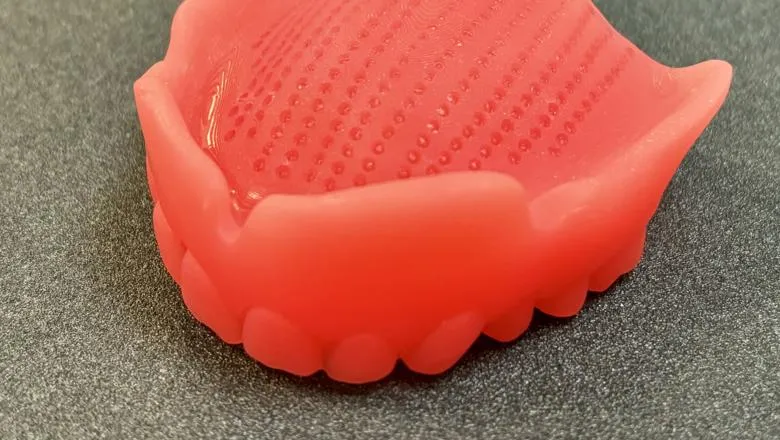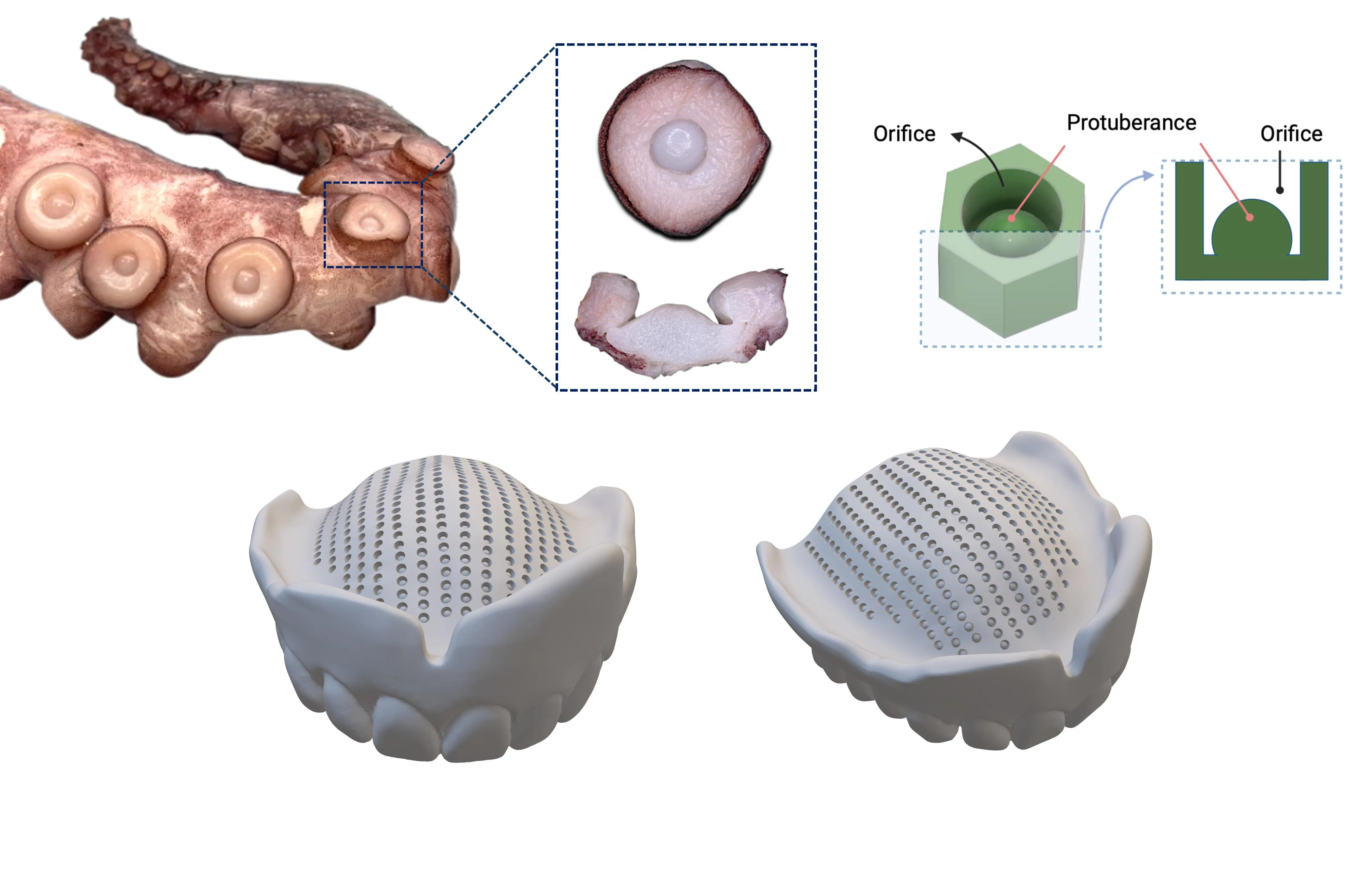This work showcases the power of ‘biomimicry’ in solving real-world medical challenges. It’s inspiring to see how insights from nature, combined with cutting-edge manufacturing techniques, can lead to innovations that improve both functionality and patient satisfaction. Contributing to this project has been an incredible opportunity to push the boundaries of dental material science.
Dr Eda Dzinovic, researcher in dental materials, King’s College London
25 November 2024
Octopus suckers fix dentures in research first
Scientists are harnessing the power of nature by mimicking octopus suckers to help dentures stick to the mouth.

For the first time, tiny ‘suction cups’ have been designed into 3D-printed dentures, helping them to stay in position. The research could help the 11% of the UK population who use a denture and the 350 million of people around the world who have no natural teeth at all.
Dentures remain the most common treatment for people who lose their teeth, particularly with age. Other options include dental implants, but these are expensive and not always available for people.
Many denture wearers will know the challenge of getting dentures to stay in place – known as ‘retention’. People are often reliant on supermarket denture adhesive, used to glue dentures back in place, but this option is unhygienic and unpopular with users.
To improve the situation, an interdisciplinary team of scientists at King’s College London explored how they could replicate the same process which enables octopuses to stick to slippery surfaces in dentistry. Octopuses have ‘suction cups’ in their tentacles which create a negative pressure and a vacuum, creating strong suction to fix them to rocks.
The team theorised that similar suckers could be added to dentures, allowing them to fix to the soft mucosa of the mouth. They designed 3D-printed models using Computer-aided design (CAD) of upper and lower dentures.
When the models were analysed, they showed greater retention than standard dentures – though, thankfully, not so strong that users couldn’t remove them from their mouths entirely. The models had twice the amount of retention as normal dentures.
The scientists, from King’s Faculty of Dentistry, Oral, and Craniofacial Sciences, then explored how chemical changes could be used to help fix dentures in place. With dentures made from plastic, they showed how covering them with a thin lining of the keratin – the same protein found in skin and hair – forms a chemical bond with the keratin of the skin in the mouth (mucosa). This further helps retention and is also invisible to the eye – not impacting the look of the dentures.

Lead author Dr Sherif Elsharkawy, King’s College London, said: "Having worked with denture wearers, who I often see in clinic, for several years, I really wanted to improve their experiences.
“I first had the idea to replicate sticky surfaces in nature while biting into a peach. I noticed how the furry skin stuck to the palate of my mouth and decided to investigate other sticky surfaces in nature. Octopus suckers seemed like the perfect place to start.
“This research bridges nature and technology to tackle a long-standing challenge for denture wearers. By mimicking the ingenious adhesive strategies found in octopus suction cups, we have developed a prototype that offers improved grip and comfort in even the most demanding oral environments. Our findings pave the way for a new generation of dentures that can transform the quality of life for millions worldwide."

